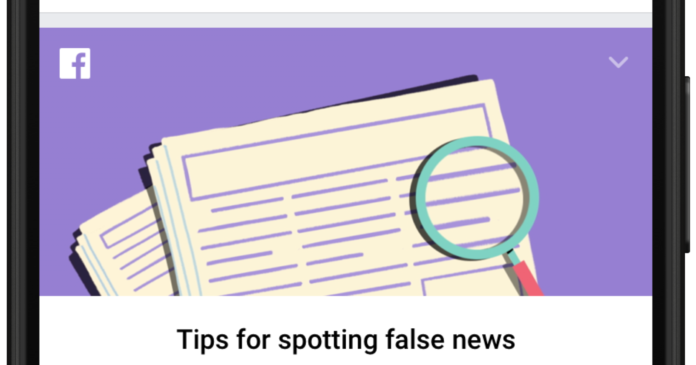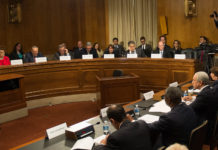
In simply nine days, France is going to vote for their next president theres going to be a second round face-off in three weeks too. And it looks like Facebook wants to avoid another fake news scandal as the company is preemptively operating full page ads in major French newspapers.
The ad makes ten tips to spot fake news on the internet. Youll find it today in the newspaper edition of Le Monde, Les chos, Libration, Le Parisien, 20 Minute and potentially other newspapers. Facebook tells you to check the URL, the date, the photos, the facts in the article and more. Its similar to the tips that started to appear at the top of the news feed in the Facebook app. You can check it out at the end of the article.
Facebook likewise shared an update on its efforts to fight fake news on its security blog yesterday. 30,000 Facebook reports ought to have banned because they shared spam, misinformation, or other deceptive content. Facebook now tries to identify and block suspicious activity, including fake likes.
Shortly after the election of U.S. President Donald Trump, Facebook admitted that it was partly responsible for the spread of misinformation. Articles saying that Hilary Clinton sold weapons to ISIS( which she did not) became more popular than articles encompassing the final days of the campaign.
The terms fake news have a new meaning today now that Trump keeps accusing negative coverage of being fake news even though the facts in those articles are correct. Thats why Facebook now tends to say false news instead of fake news.
These endeavors are interesting for a few of reasons. First, Mark Zuckerberg told multiple times that his company wasnt held liable for the spread of fake news. And yet, Facebook likewise announced that it would address fake news back in December with clear changes to the platform. Today is a continuation of those efforts.
Second, its a bit sad that Facebook itself has to teach everyone how to spot fake news. Im sure most people could read an article and told that it appears fake. But the issue is that too many people still blindly share a headline on Facebook without reading the actual articles.
Finally, Im not sure a coordinated advertising campaign in major newspapers is really effective. Most people dont read newspapers anymore, at least not the paper version. Id even say that people who spend time readingnewspapers are probably better informed than an average person and could spot fake news more easily.
So I dont think this advertising campaign is about advising people about fake news. Facebook wants to show that it is tackling the issue of fake news ahead of such elections. Im sure writers working for all those publications are going to notice those ads and subconsciously think that Facebook isnt becoming a blind eye this time.
This way, if a controversial candidate like Marine Le Pen gets enough votes to access the second round of such elections, writers wont think about accusing Facebook. Its a well-designed PR campaign to protect Facebooks image.

Read more here: https :// techcrunch.com







